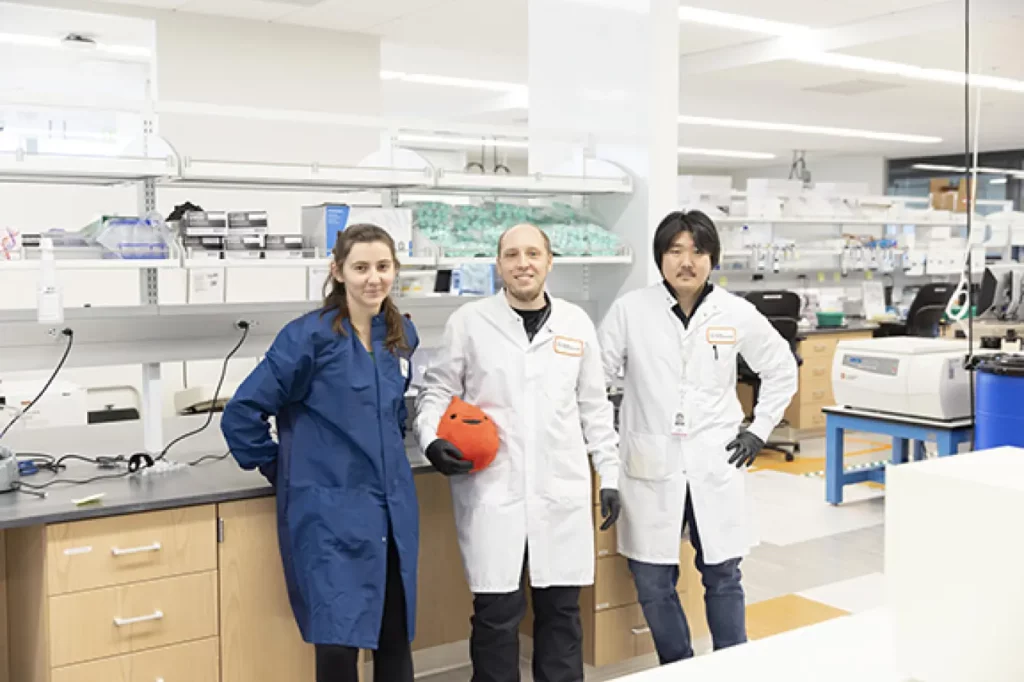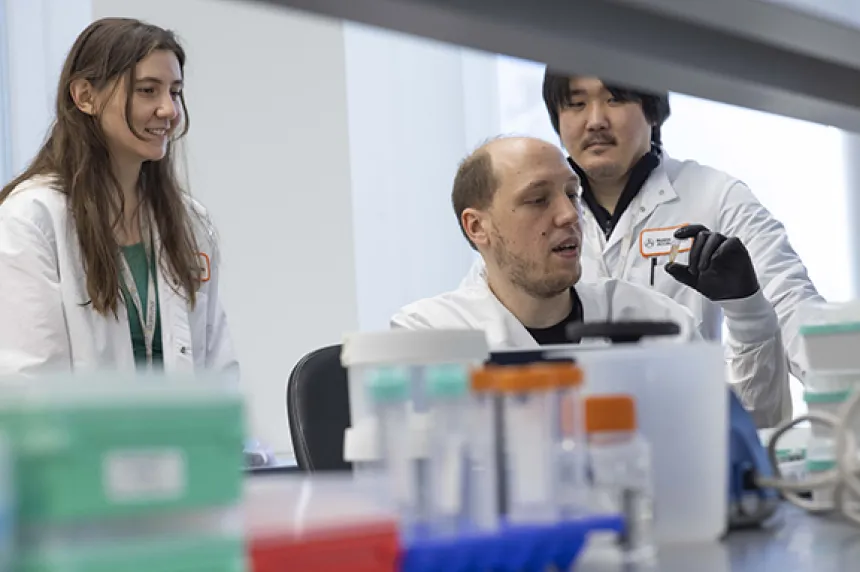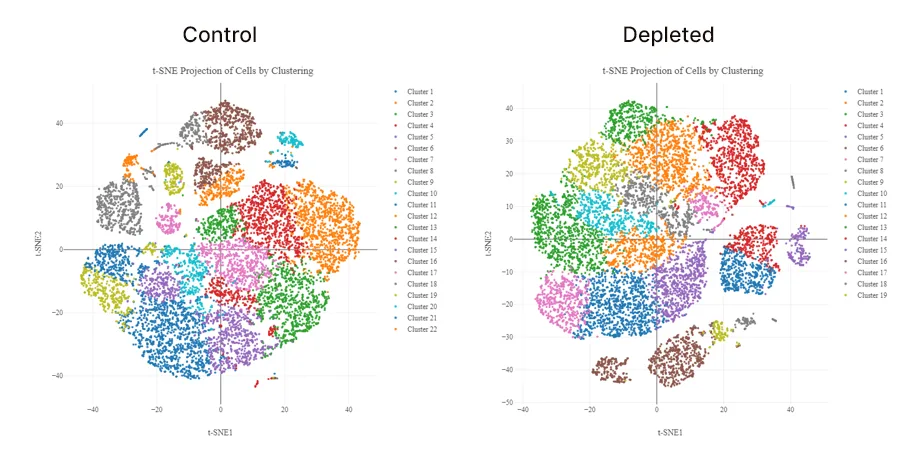
Customer Stories
Isolating informative RNA gives ImYoo™ greater power to grow their business
ImYoo is a single-cell transcriptomics startup that helps biopharma companies stratify study participants to optimize clinical trials. The company is also building a direct-to-consumer business to deliver personalized, evidence-driven health insights and connect people with similar immune profiles to help them share useful information.
The company is using single-cell gene expression profiling to understand immune variability and personalize information. Starting with a small capillary blood sample between 300-500 ul, the technique can measure gene expression levels in thousands of cells.
This approach is built on work members of the ImYoo team conducted when they were at Caltech. CEO Tatyana Dobreva, Ph.D., CTO David Brown, Ph.D., and Principal Scientist Jeff Park developed a platform that relies on capillary blood extraction and single-cell sequencing to profile the human immune system.
The platform has proven adept at measuring variations in cell type-specific gene expression between subjects, work that was published in Nature Scientific Reports. ImYoo just finished their six-month term at Illumina Accelerator where they further improved their technology and collected copious amounts of data on human immune variability. As part of their recent award through the Immunology Innovations QuickFire Challenge, they will soon become residents at Johnson & Johnson Innovation – JLABS.
ImYoo’s single cell RNA sequencing approach has the potential to provide incredible insights for both companies and consumers. However, uninformative RNA was substantially increasing their sequencing costs. Jumpcode’s CRISPRclean Single Cell RNA Boost Kit, which uses Cas9 and unique guide RNAs to deplete many of the uninformative transcripts before sequencing, is helping ImYoo overcome this barrier.

Two applications for immune analysis
ImYoo’s business has two tracks. The first and primary track is stratifying patients for drug responses and adverse effects. By investigating hundreds of RNA transcripts, they can profile potential study participants to determine who will most likely benefit from a specific agent. The company is also collecting information to expand these studies to the consumer market in the future. These in-depth analyses could give people unique insights into their health and be particularly useful for those suffering from chronic diseases.

One example is rheumatoid arthritis, a painful and debilitating autoimmune condition with several subtypes. Many patients don’t know which category they fall into, and this might be because they haven’t had their immune system analyzed to this depth. Understanding these nuances could inform personal choices and more precise treatments. In other cases, people may be undiagnosed and insights derived from single cell immune expression profiling could help them clarify their conditions. ImYoo envisions a platform where biologically similar people share useful information about their health – comparing apples to apples.
“People want to be able to understand their conditions so they can find drug or lifestyle interventions that could work for them,” said Brown. “We hope that, by grouping people with similar immune profiles, we give them opportunities to share their experiences and gain new insights from peers with the same condition at the molecular level.”
At the same time, people will receive tremendous amounts of information about their immune systems, such as cell distributions and inflammatory status. At present, the company is focusing on migraine and asthma and may soon pursue inflammatory bowel disease and other conditions.
This approach could also be useful for health-minded people who want to understand how their specific immune system characteristics change over time and how that may impact their wellbeing. “It’s an opportunity for people to build up their personal databases over time so they can better understand how to improve their health,” said Dobreva. “For example, some people want more detailed information to optimize their workout schedules.”
Eliminating uninformative RNA to boost sequencing efficiency
ImYoo is now collecting samples to investigate which gene signatures will characterize specific conditions and, even more importantly, distinct subsets of those conditions. However, high concentrations of uninformative, housekeeping RNA can make this process challenging. CRISPRclean removes these reads in vitro, redistributing sequencing clusters to unique biologically relevant transcripts. Since ImYoo’s assay relies on sequencing, they need to make that piece incredibly precise and informative.
“There are too many sequencing reads spent on molecules that impart very little information. We’d be getting all these housekeeping genes and others that are largely the same across people and across time. It just doesn’t add a lot of value. We need strategies to refine our sequencing libraries, so we can scale up and get better immune system data.”
David Brown, Ph.D

Sequencing costs are a big deal for ImYoo. They’re going to need a lot of data to validate their approach and sequencing is a big part of that equation. ImYoo’s ability to set an appropriate price point for consumers will play a major role in their success. “It’s really about reducing the cost per sample for us,” said Dobreva, “which will help us scale up.” Jumpcode’s depletion technology did what ImYoo needed by eliminating the uninformative sequences that were reducing their ability to gather valuable data at reasonable costs. The CRISPRclean Single Cell RNA Boost Kit depleted samples appropriately, removing the molecules ImYoo didn’t need and kept the ones they did. “It worked as advertised,” said Dobreva, “and it integrated into our workflow easily.”